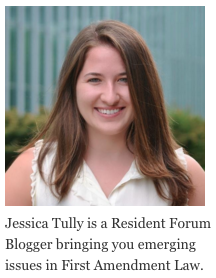Brad Buehrle could not have imagined that his decision to open a tattoo parlor in Key West, Florida would raise a constitutional question on whether tattooing is a protected form of artistic expression.
Buehrle’s question was recently decided by the 11th Circuit Court of Appeals. The Court held that Key West’s tattoo parlor ban is unconstitutional. According to David Hudson, a professor at Vanderbilt School of Law, the 11th circuit reached the right conclusion.
“The 11th Circuit’s decision is sound,” Hudson wrote. “Tattoos obviously convey important messages. To many people, they are their personal art of life.”
The City of Key West denied Buehrle’s application to open a tattoo establishment because the City had an ordinance banning tattoo parlors in its historic district—an ordinance that had been modified to allow two tattoo parlors to operate in the district pursuant to a settlement of a previous challenge on the city’s ban.
In response to Buehrle’s lawsuit, the City argued that allowing more tattoo establishments would adversely affect tourism because “rash tourists will obtain regrettable tattoos, leading to negative association with Key West.” The District Court for the Southern District of Florida granted the City’s motion for summary judgment, finding that the ordinance was content neutral and constituted a reasonable time, place, and manner restriction.
While other circuits had dealt with the issue, prior to Buehrle v. City of Key West, the 11th Circuit Court had never addressed whether tattooing was a protected form of artistic expression. In its decision on the issue, the 11th Circuit agreed with the 9th Circuit, holding:
“[T]attooing [is] virtually indistinguishable from other protected forms of artistic expression. As [the 9th Circuit] observed, “[t]he principal difference between a tattoo and, for example, a pen-and-ink drawing, is that a tattoo is engrafted onto a person’s skin rather than drawn on paper. . . . [A] form of speech does not lose First Amendment protection based on the kind of surface it is applied to.”
The City also argued that there was a difference between the process of creating a tattoo and the tattoo, itself, but the 11th Circuit Court rejected this argument. The court reasoned that the tattooing process and the tattoo, itself, cannot be separated because the right to first get the tattoo.
“The First Amendment protects the artist who paints a piece just as surely as it protects the gallery owner who displays it, the buyer who purchases it, and the people who view it,” the Court wrote.
Key West had a high burden under the First Amendment; it had to demonstrate with pre-enactment evidence that the city had a reasonable basis for believing that its regulation would further a legitimate state interest. Key West did not adequately explain how allowing additional tattoo establishments in the city would hurt the historic district, nor could it show that the two tattoo parlors currently operating in the historic district hurt tourism. Additionally, the city conducted no studies and made no findings about the purported negative effect of tattoo establishments on tourism.
While the city may disagree with the court and may appeal the decision to the U.S. Supreme Court, I am convinced that the Circuit Court reached the right conclusion. If Key West hopes to win on appeal, it will need to demonstrate that tattoo establishments have a negative effect on tourism in the area. When constitutionally protected expression is at stake, a city ban of tattoo parlors cannot prevail when only shoddy evidence is used to demonstrate the negative effect the parlors have on tourism; the First Amendment demands more.
Published February 28, 2016
